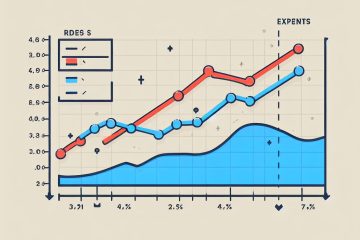
The Role of Anti-Money Laundering Measures in Ensuring a Secure Mortgage Application Process
The mortgage industry plays a vital role in facilitating homeownership dreams. To ensure the integrity and security of this process, lenders implement rigorous measures to prevent illicit activities like money laundering. Anti-Money Laundering (AML) procedures are crucial steps in obtaining a mortgage that protect both lenders and borrowers. In this blog post, we will delve into the anti-money laundering process in the mortgage application journey and its significance in safeguarding the financial system. The BC government commissioned a report outlining the prevalance in money laundering in the province in 2018. That report can be found here.
1. What is Anti-Money Laundering (AML)?
Anti-Money Laundering refers to a set of policies, procedures, and regulations designed to detect and prevent the illegal practice of disguising illicitly obtained funds as legitimate income. The primary objective of AML measures is to stop the flow of illegal money through financial institutions, including mortgage lenders.
2. The Importance of AML in the Mortgage Process
The mortgage industry is vulnerable to money laundering due to the large sums of money involved. Real estate transactions have been historically used to conceal illicit funds. AML safeguards are essential for the following reasons:
a) Protecting Financial Institutions:
By implementing AML processes, mortgage lenders protect themselves from legal and reputational risks associated with unknowingly engaging in money laundering activities.
b) Safeguarding Borrowers:
AML measures prevent mortgage applicants from unwittingly becoming involved in illegal activities that could negatively impact their financial well-being.
c) Preserving the Financial System:
AML ensures the integrity and stability of the overall financial system by deterring criminals from exploiting mortgage processes for money laundering.
3. Key Components of AML in Mortgage Applications
a) Customer Due Diligence:
Lenders conduct thorough customer due diligence to verify the identity of applicants and to understand their financial activities. All while assessing potential risks associated with the mortgage application.
b) Suspicious Activity Reporting:
Financial institutions are required to report any suspicious transactions or activities that may indicate money laundering attempts to relevant authorities.
c) Enhanced Due Diligence:
In certain cases, when dealing with high-risk customers or complex transactions, lenders may conduct enhanced due diligence. Lenders need a deeper understanding of the applicant’s background when dealing with well known, political or high net worth clients.
d) Ongoing Monitoring:
Lenders continuously monitor customer accounts and transactions to detect unusual or suspicious patterns that might indicate money laundering.
4. Impact on Mortgage Applicants
For mortgage applicants, the AML process involves providing documentation and information to establish the legitimacy of their funds. This may include providing identification documents, proof of income, bank statements, and source of funds for the down payment. In most scenarios it involves showing 90 day bank statements on the funds using for down payment.
5. Cooperation is Key
To expedite the process, borrowers should be proactive in providing the required documentation and cooperating with lenders during AML checks. Timely and transparent communication helps build trust and ensures a smooth application journey.
Conclusion
The anti-money laundering process is an integral part of obtaining a mortgage. The AML process is designed to protect both financial institutions and mortgage applicants. By diligently implementing AML measures, lenders contribute to the stability and security of the mortgage industry, creating a safer environment for homeownership and responsible lending practices. For applicants, cooperating with the AML process ensures a seamless mortgage application experience. As well as, contributing to a robust financial system that upholds the highest standards of integrity.
